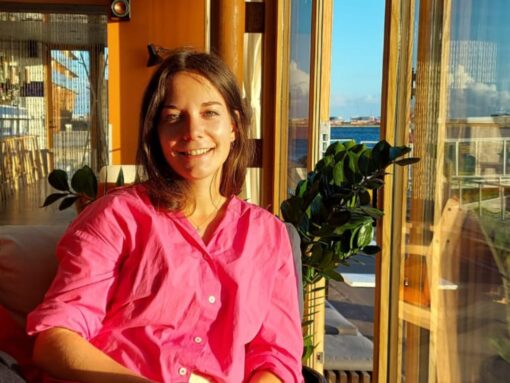Are you dissatisfied with your organisation when studying, doubt your learning strategies and regularly postpone preparing for exams? The Center for Teaching and Learning (CTL) supports you with improving your learning process and mobilising available resources for this purpose.
Getting to know myself as a learner
Although learning has accompanied you for the majority of your life, you may feel that you are not learning “properly” or that you want to learn in a “better” way. Sometimes a few simple learning tips can lead to the desired outcome. However, it is more effective to observe and reflect on one’s own learning and to try out new strategies in a targeted way. We can present you with a couple of possibilities, so that you can better get to know yourself as a learner.
Reflect on your own study habits
Knowing the learning methods that work well for you and the framework you need is helpful for you to be able to assess yourself well and adjust things if necessary. Self-observation becomes even more important as soon as you want to try new strategies or ways. Note down what you are doing and how well you think it is working. Ideally, this self-reflection would take place over multiple days. You can take a closer look at the following areas:
- Learning preparation: Do I have an overview of the learning material? Do I prioritise the learning material? Do I know about the examination type and the requirements? Do I have a time schedule and what does it look like?
- Places for studying: Where do I learn? What are the pros and cons of these places? What is a good place to learn for me? What external factors are particularly disrupting and how can I escape or avoid them?
- Learning times: When can I learn? How long are my learning sessions? How long do I actually manage to stay focused? Do I have fixed learning times and do I stick to them? What do I do if I do not stick to my learning times or procrastinate? Do my learning times change the closer I get to the exam?
- Breaks: Do I take or plan breaks? What exactly do I do during breaks? Am I refreshed after my breaks and can continue learning in a focused way?
- Learning strategies: How do I learn? Do I read the lecture notes or exam literature, do I underline text passages? Do I write summaries? Do I work with mind maps or other structured techniques? Do I formulate questions about the content and do I try to answer them?
- Revision: Do I schedule time to revise the study material? How much? How many revision cycles can I manage in this time? Do I note the parts I already know well and focus on the parts that I do not know well when I repeat them?
- Motivation: What motivates me to learn for an exam? What do I do when motivation is low? Do I reward myself after learning?
In the course of this reflection, thoughts may come to your mind about changing something in your learning behaviour. However, change rarely happens overnight and often requires many small steps:
- Think about what you would like to change and how, and what you hope to achieve.
- Then decide to try one or two approaches, such as a different learning location or a learning plan.
- Observe your new approach and finally, after a reasonable time, reflect on what the effect has been and whether you want to continue this practice. A learning journal can be helpful here.
Learning journal – documenting and analysing learning processes
A learning journal is a good way to observe and analyse your way of learning: It gives insight into the strategies used and their benefits for your learning process. It can also help to track the often little noticed (hindering or facilitating) emotions in learning. Here a couple of recommendations for its use:
- Write short entries, but over a long period of time: Take about 10 to 15 minutes per entry. It is important that you document your learning over multiple weeks. This takes a certain persistence.
- Write the entries before and after your daily learning time: In the entry before learning, you deal with goals, planning and mood. After learning, you reflect on the procedure, evaluate the result and derive consequences for the following learning process.
- Write your entries along guiding questions: In this way, you create a structure within which you write the entries.
- Recommendations for guiding questions before learning: What is my learning goal for today? What learning strategy do I use for it? What is my mood today?
- Recommendations after learning: What have I achieved? What method/ learning strategy worked well for me today? What do I want to change for the next time? What did I understand well, what not? How did I manage to start the task? Was I able to avoid distractions? What made me dis/satisfied?
- How to deal with setbacks: Setbacks, mistakes and failures have an important place in the learning journal. A situation analysis is helpful for coping with the situation. Also see exam failures– learning from experience (in German)
Writing it down helps you to become aware of your own approaches. This realisation is a first step in making any changes, such as rewarding yourself after learning. The learning journal also makes your own learning progress visible in retrospect. And finally, it is a good basis for talking about one’s own learning with others or in the learning group. The exchange about one’s own learning brings new impulses and motivates.
It is important to reflect on yourself – but it is also exhausting. It is important to take breaks after longer time spans of journaling.
Recognise and mobilise own resources
Resources are important for learning and exam preparation. Most of the time, we only have a partial view of the resources or do not consciously develop our approach to them.
For an inventory of the available resources, the resource map will help you (in German). It consists of four fields to be completed:
- Personal resources and competences: What am I good at? Where do my interest lie?
- Social resources: What social relationships in the family, among friends and acquaintances, at work and at University support me?
- Material resources: Are there materials that can help me, like practice books, lecture notes, summaries? Is there learning support in Moodle or exchange forums for students for the respective course?
- Infrastructural/institutional resources: Do the University of Vienna or other institutions offer services that can support you, such as the CTL, the Psychological Counselling Services, the students’ representatives or the ÖH (in German)?
Think about what has helped you to cope with challenging situations so far. But also think about those resources that are potentially there, but that you have not used or have hardly used so far. Look for or inform yourself about institutional support services: These are there to be used and you will also meet people there who are in the same situation as you. Also, dare to approach people and ask for support – the worst thing that can happen is to receive a ‘no’.
Conclusion: Learning more about your own way of learning is an exciting and helpful process.




